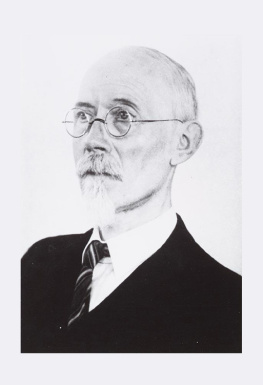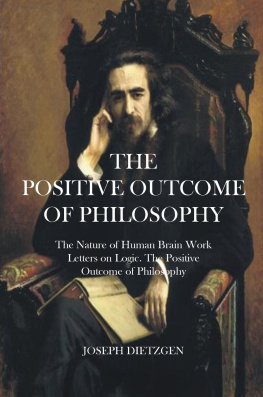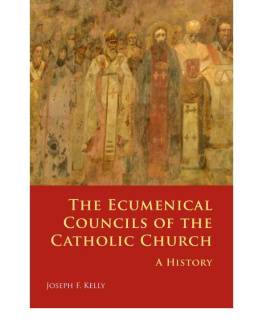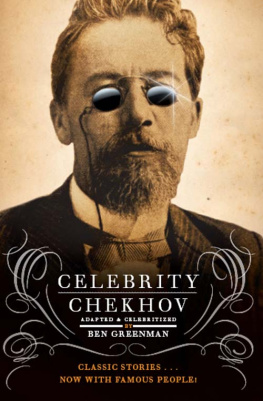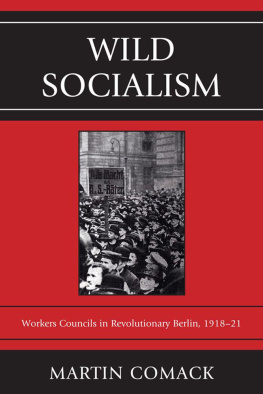Anton Pannekoek - Workers Councils
Here you can read online Anton Pannekoek - Workers Councils full text of the book (entire story) in english for free. Download pdf and epub, get meaning, cover and reviews about this ebook. year: 2013, publisher: Marxists Internet Archive, genre: Romance novel. Description of the work, (preface) as well as reviews are available. Best literature library LitArk.com created for fans of good reading and offers a wide selection of genres:
Romance novel
Science fiction
Adventure
Detective
Science
History
Home and family
Prose
Art
Politics
Computer
Non-fiction
Religion
Business
Children
Humor
Choose a favorite category and find really read worthwhile books. Enjoy immersion in the world of imagination, feel the emotions of the characters or learn something new for yourself, make an fascinating discovery.
- Book:Workers Councils
- Author:
- Publisher:Marxists Internet Archive
- Genre:
- Year:2013
- Rating:4 / 5
- Favourites:Add to favourites
- Your mark:
- 80
- 1
- 2
- 3
- 4
- 5
Workers Councils: summary, description and annotation
We offer to read an annotation, description, summary or preface (depends on what the author of the book "Workers Councils" wrote himself). If you haven't found the necessary information about the book — write in the comments, we will try to find it.
Workers Councils — read online for free the complete book (whole text) full work
Below is the text of the book, divided by pages. System saving the place of the last page read, allows you to conveniently read the book "Workers Councils" online for free, without having to search again every time where you left off. Put a bookmark, and you can go to the page where you finished reading at any time.
Font size:
Interval:
Bookmark:
Published: The Dutch edition was published as "De arbeidersraaden" by the Communistenbond Spartacus in Amsterdam in 1946 under the pseudonym P. Aartsz. The first English edition was published by J. A. Dawson in 1950.
Transcriber: John Gray
HTML:
Proofed: and corrected by Paul Germanotta for the MIA, April 2011.
Converted to eBook format by: Sam Frances, May 2013
Source URL: http://www.marxists.org/archive/pannekoe/1947/workers-councils.htm
- (1944)
- (1947)
The main part of this book has been written during the war under the occupation of Holland by the Germans, the first three parts 1942; the fourth 1944; a fifth part was added after the war, 1947. The author, who during many years attentively observed, and sometimes actively took part in, the workers' movement, gives here a summary of what from these experiences and study may be derived as to methods and aims of the workers' fight for freedom. A somewhat different Dutch version was published in Holland, 1946. The English version was printed at Melbourne serially, as an addition to the monthly "Southern Advocate for Workers' Councils," during the years 1947-49. Owing to many difficulties the publication in book-form was delayed until 1950.
J. A. Dawson
(As it appeared in the original Dutch Edition)
This book has been written in the war years 1941-42 under the occupation of Holland by the Germans. The author, who during many years attentively observed and sometimes actively took part in the workers' movement, gives here a summary of what from these experiences and study may be derived as to methods and aims of the workers' fight for freedom. What a century of workers' struggles presents to us is neither a series of ever again failing attempts at liberalism, nor a steadfast forward march of the workers following a fixed plan of old well-tried tactics. With the development of society we see arise new forms of fight, and this development imposed by the growth of capitalism and the growth of the working class, must go on in ever mightier display.
The first part of the book shows the task which the workers have to perform and the fight they have to wage. The following parts treat the social and spiritual trends arising in the bourgeoisie that determine the conditions under which the workers had and have to fight. All the discourses are based on the deep connection between production system and class-fight elucidated in Marxian theory.
-- The Editor.
In the present and coming times, now that Europe is devastated and mankind is impoverished by world war, it impends upon the workers of the world to organize industry, in order to free themselves from want and exploitation. It will be their task to take into their own hands the management of the production of goods. To accomplish this great and difficult work, it will be necessary to fully recognize the present character of labor. The better their knowledge of society and of the position of labor in it, the less difficulties, disappointments and setbacks they will encounter in this striving.
The basis of society is the production of all goods necessary to life. This production, for the most important part, takes place by means of highly developed technics in large factories and plants by complicated machines. This development of technics, from small tools that could be handled by one man, to big machines handled by large collectives of workers of different kind, took place in the last centuries. Though small tools are still used as accessories, and small shops are still numerous, they hardly play a role in the bulk of the production.
Each factory is an organization carefully adapted to its aims; an organization of dead as well as of living forces, of instruments and workers. The forms and the character of this organization are determined by the aims it has to serve. What are these aims?
In the present time, production is dominated by capital. The capitalist, possessor of money, founded the factory, bought the machines and the raw materials, hires the workers and makes them produce goods that can be sold. That is, he buys the labor power of the workers, to be spent in their daily task, and he pays to them its value, the wages by which they can procure what they need to live and to continually restore their labor power. The value a worker creates in his daily work in adding it to the value of the raw materials, is larger than what he needs for his living and receives for his labor power. The difference that the capitalist gets in his hands when the product is sold, the surplus-value, forms his profit, which in so far as it is not consumed, is accumulated into new capital. The labor power of the working class thus may be compared with an ore mine, that in exploitation gives out a produce exceeding the cost bestowed on it. Hence the term exploitation of labor by capital. Capital itself is the product of labor; its bulk is accumulated surplus-value.
Capital is master of production; it has the factory, the machines, the produced goods; the workers work at its command; its aims dominate the work and determine the character of the organization. The aim of capital is to make profit. The capitalist is not driven by the desire to provide his fellow-men with the necessities of life; he is driven by the necessity of making money. If he has a shoe factory he is not animated by compassion for the painful feet of other people; he is animated by the knowledge that his enterprise must yield profit and that he will go bankrupt if his profits are insufficient. Of course, the normal way to make profit is to produce goods that can be sold at a good price, and they can be sold, normally, only when they are necessary and practical consumption-goods for the buyers. So the shoe-maker, to produce profits for himself, has to produce well-fitting shoes, better or cheaper shoes than others make. Thus, normally, capitalist production succeeds in what should be the aim of production, to provide mankind with its life necessities. But the many cases, where it is more profitable to produce superfluous luxuries for the rich or trash for the poor, or to sell the whole plant to a competitor who may close it, show that the primary object of present production is profit for the capital.
This object determines the character of the organization of the work in the shop. First it establishes the command by one absolute master. If he is the owner himself, he has to take care that he does not lose his capital; on the contrary he must increase it. His interest dominates the work; the workers are his "hands," and they have to obey. It determines his part and his function in the work. Should the workers complain of their long hours and fatiguing work, he points to his task and his solicitudes that keep him busy till late in the night after they have gone home without concerning themselves any more. He forgets to tell, what he hardly understands himself, that all his often strenuous work, all his worry that keeps him awake at night, serves only the profit, not the production itself. It deals with the problems of how to sell his products, how to outrival his competitors, how to bring the largest possible part of the total surplus-value into his own coffers. His work is not a productive work; his exertions in fighting his competitors are useless for society. But he is the master and his aims direct the shop.
If he is an appointed director he knows that he is appointed to produce profit for the shareholders. If he does not manage to do so, he is dismissed and replaced by another man. Of course, he must be a good expert, he must understand the technics of his branch, to be able to direct the work of production. But still more he must be expert in profit-making. In the first place he must understand the technics of increasing the net-profit, by finding out how to produce at least cost, how to sell with most success and how to beat his rivals. This every director knows. It determines the management of business. It also determines the organization within the shop.
Font size:
Interval:
Bookmark:
Similar books «Workers Councils»
Look at similar books to Workers Councils. We have selected literature similar in name and meaning in the hope of providing readers with more options to find new, interesting, not yet read works.
Discussion, reviews of the book Workers Councils and just readers' own opinions. Leave your comments, write what you think about the work, its meaning or the main characters. Specify what exactly you liked and what you didn't like, and why you think so.

